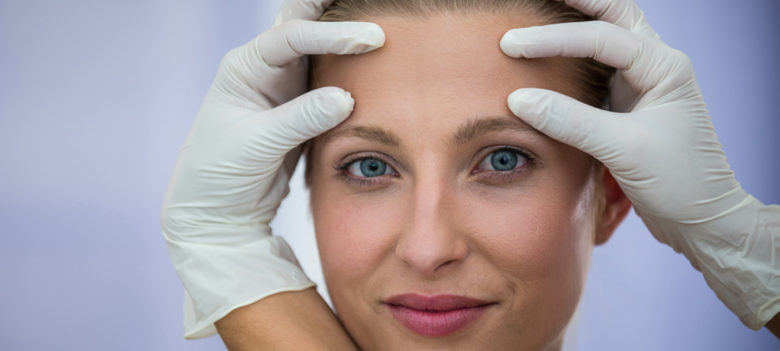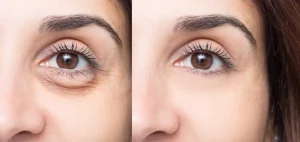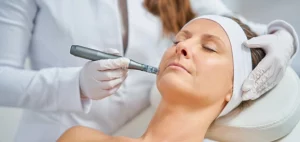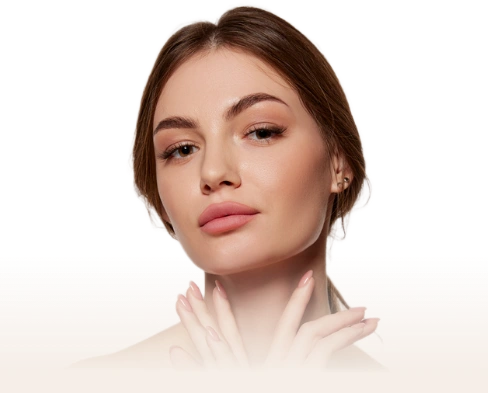The deep lines that appear across the forehead due to facial expressions and movements are known as forehead wrinkles – people who wish to diminish these wrinkles can opt for the most effective treatment fillers for forehead wrinkles.
They are generally linked to people who constantly voice their fear or concern. As a result of skin aging, forehead lines can also appear concurrently with volume loss and loss of skin suppleness; making the wrinkles much more prominent.
Both men and women frequently worry about forehead lines. The frontalis muscle’s contraction is the basic process of how wrinkles are caused. This muscle is responsible for raising eyebrows and helping with certain facial expressions.
What Causes Forehead Wrinkles?
A typical and common indicator of aging wrinkles is that they are brought on by various environmental circumstances, as well as by natural forces:
Aging is the most common cause of forehead wrinkles. It should be no surprise that as you age and your skin loses elasticity, forehead lines and other skin aging symptoms appear more frequently.
This is because collagen, a crucial structural protein found in connective tissue, decreases in production in your skin over time. According to research, the amount of collagen in the skin decreases by roughly 1% annually.
Sun exposure without protection, and spending time in the sun can expose your skin to UV radiation, which is a primary contributor to early aging indications. Your chance of getting skin cancer rises due to too much sun exposure.
Smoking is associated with a decrease in collagen synthesis; in fact, one study discovered that smokers manufacture some types of collagen at a rate that is lower than that of non-smokers.
Genetics: Your genetics may influence your propensity to get forehead wrinkles, much like other parts of your look.
Alcohol intake
Lack of sleep
Overuse of your facial muscles
For instance, using your facial muscles is necessary to portray expressions like smiling, lifting your eyebrows, and squinting. These facial expressions can form skin grooves over time, which eventually over a period of time turn into wrinkles.
Contrary to popular opinion, your skin doesn’t start to develop wrinkles as you enter your 30s, 40s, 50s, or even 60s – Instead, wrinkles typically appear gradually over time and are only noticeable when they are sufficiently severe and deep for you to see them, regardless of the age.
It’s crucial to pay attention to your skin if you’re worried about wrinkles. Try to keep an eye out for even minor wrinkles forming on your face, particularly on the forehead. The treatments explained below can be utilized to act as soon as possible, if you detect any form of fine lines and wrinkles.
Fillers For Forehead Wrinkles
Dermal fillers for forehead wrinkles is one of the most commonly administered treatments, as the forehead is more prone to the formation of wrinkles; and these injectables are the most effective and safe of the available treatment options. Dermal fillers work their magic of skin rejuvenation when injected beneath the skin by dramatically plumping up the skin and filling out creases and facial or forehead wrinkles.
Consult your aesthetic experts when opting for dermal fillers for deep forehead wrinkles. Dermal fillers can be created using synthetic materials or naturally occurring compounds found in the body. Depending on your desired look, you can choose which filler would work best for you; each filler offers distinct results.
Here is a guide on forehead wrinkle fillers to help you understand how they work:
1. Hyaluronic Acid or HA Fillers
Hyaluronic acid is one of the best deep wrinkle fillers for forehead treatments for a reason – For starters, hyaluronic acid, a naturally occurring substance in the skin, can be utilized as a cosmetic filler injection to lessen the visibility of facial lines and deep forehead wrinkles while maintaining the skin’s hydration and moisture for a more youthful appearance.
Hyaluronic acid fillers’ skin-improving and anti-wrinkle effects can continue for six to twelve months. These filters can aid in maintaining fullness and smooth skin texture for a while, even after the body has absorbed its particles since hyaluronic acid compounds can attract and hold water.
2. Calcium Hydroxylapatite or CaHA Filler
Biocompatible cosmetic injectables called Calcium Hydroxylapatite fillers have CaHA microspheres suspended in an aqueous gel. CaHA fillers, like hyaluronic acid, are produced from organic materials typically found in bones. As a result of its material’s thicker and firmer nature, it is excellent for supporting skin and boosting facial volume.
CaHA fillers are also considered bio stimulators, which can promote the synthesis of new collagen for effects that last longer. This filler is frequently utilized for moderate to severe fine lines and deeper forehead creases. Additionally, it lessens the visibility of wrinkles around the lips and nose (nasolabial folds and marionette lines).
3. Polymethylmethacrylate or PMMA Filler
To make a facial filler material, synthetic polymethylmethacrylate is typically combined with bovine collagen in the shape of tiny micro-spherical beads. PMMA is a soft tissue filler that can address glabellar furrows, smile lines, frown lines, and nasolabial folds. Additionally, it’s designed to lessen the visibility of mild to severe acne scars.
The PMMA microspheres can also increase your skin’s elastin and collagen production. PMMA fillers can have long-lasting effects that improve over time to help decrease the development of deep forehead wrinkles and fine lines by promoting collagen growth.
One of the main concerns that people have, and frequently inquire about is how long fillers last on the forehead – While it may vary for individuals, the results of dermal fillers usually last for a duration of more or less six months.
Everyone who is concerned and embarrassed by carrying wrinkled skin, and wishes to get rid of them – reach out to Manhattan’s leading med spa “Syra Aesthetics”.
With board-certified physicians, Syra Aesthetics offers free of cost consultations to help you understand and set realistic expectations; while also ensuring to deliver the best results to help you achieve your aesthetic goals.
——————————————–
– Disclaimer –
This blog is for informational & educational purposes only and does not intend to substitute any professional medical advice or consultation.
For any symptoms or medical advice, please consult with your physician,
Or Book an appointment with our expert aestheticians at Syra Aesthetics.

About The Author
Dr. Syra Hanif M.D.
Board Certified Primary Care Physician
Dr. Hanif is the Director of Aesthetic Medicine. She is a board-certified physician in Aesthetic Medicine who specializes in using non-surgical alternatives in order to enhance one's appearance through Botox and fillers.
Read More











